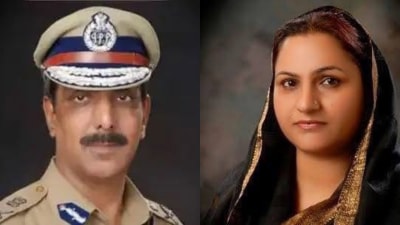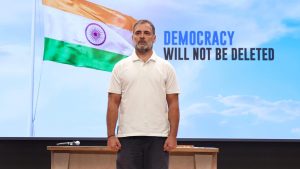38 years after war, two Chinese prisoners wait for freedom in Ranchi hospital
RANCHI, JULY 31: Fifty-nine-year-old Yung Chialung sits in the portico of the library of the Central Institute of Psychiatry, Asia's oldes...

RANCHI, JULY 31: Fifty-nine-year-old Yung Chialung sits in the portico of the library of the Central Institute of Psychiatry, Asia’s oldest mental asylum. Memories of a war and forty years of silence are mirrored in his eyes. It has been a long wait, perhaps an endless one for him, a Chinese prisoner of war (PoW) of 1962.
Yung is one of the two Chinese prisoners of the 1962 war lodged in the mental asylum, considered hell even by Bihar standards, ignored by Beijing and New Delhi. Almost four decades and several summits and discussions after the war, these two remain prisoners of solitude and negligence.
Clad in beige-coloured kurta and sky-blue pyjama, Yung looks straight into your eyes and smiles. Perhaps, he is in the cusp of memory and forgetfulness after tortuous years of isolation. He hasn’t talked a whole sentence in the last 38 years to any one of the hospital staff as he doesn’t know their language.
This former Chinese soldier has been a prisoner within the high walls of the asylum since 1962. Doctors at the institute say that Yung had recovered from a `mild’ attack of schizophrenia in 1963. But since he is a PoW of the 1962 Indo-China war, there is no one to take him out of the asylum.
In fact, ever since he was brought to the asylum — on December 14, 1962 — the hospital authorities have not received any correspondence from either government or army on the prisoner.
His only comfort perhaps is in the fact that he shares a room with a person with whom he can communicate. M A Siblong, 62, was imprisoned by the Indian Army during the war and admitted to this asylum on December 8, 1962. At the Kreplin ward of the government-run institute, they have spent 38 years talking to each other and no one else. They are no longer ill but don’t have anywhere to go.
The hospital authorities do not entertain questions on their official status and refuse to show any documents on them. They, however, don’t mind speaking about the lifestyle of the two unusual inmates.
Their room is clean. So are their clothes, bed sheets, mattresses and pillows. A nurse who attends on them said: “Both of them behave gentlemanly and like rice, milk and biscuits.” Try talking to them, the answer is just a smile to any question. How are you? Don’t you want to return to China? Smile.
“Since they don’t understand Hindi or English, we converse with them with symbols and gestures,” she added. Samlong, however, knows two Hindi words: cha (tea) and biskoot.
Both of them are aging but agile. While Yung walked briskly, Samlong limped. “He had slipped and injured his right leg,” said the nurse while the hospital director D Ram nodded.
The two prisoners of a forgotten war — who wouldn’t have even come to know about the death of Mao and Deng — wait for Beijing’s call while Ranchi’s nightmarish asylum wait for help. From anyone.





- 01
- 02
- 03
- 04
- 05


























